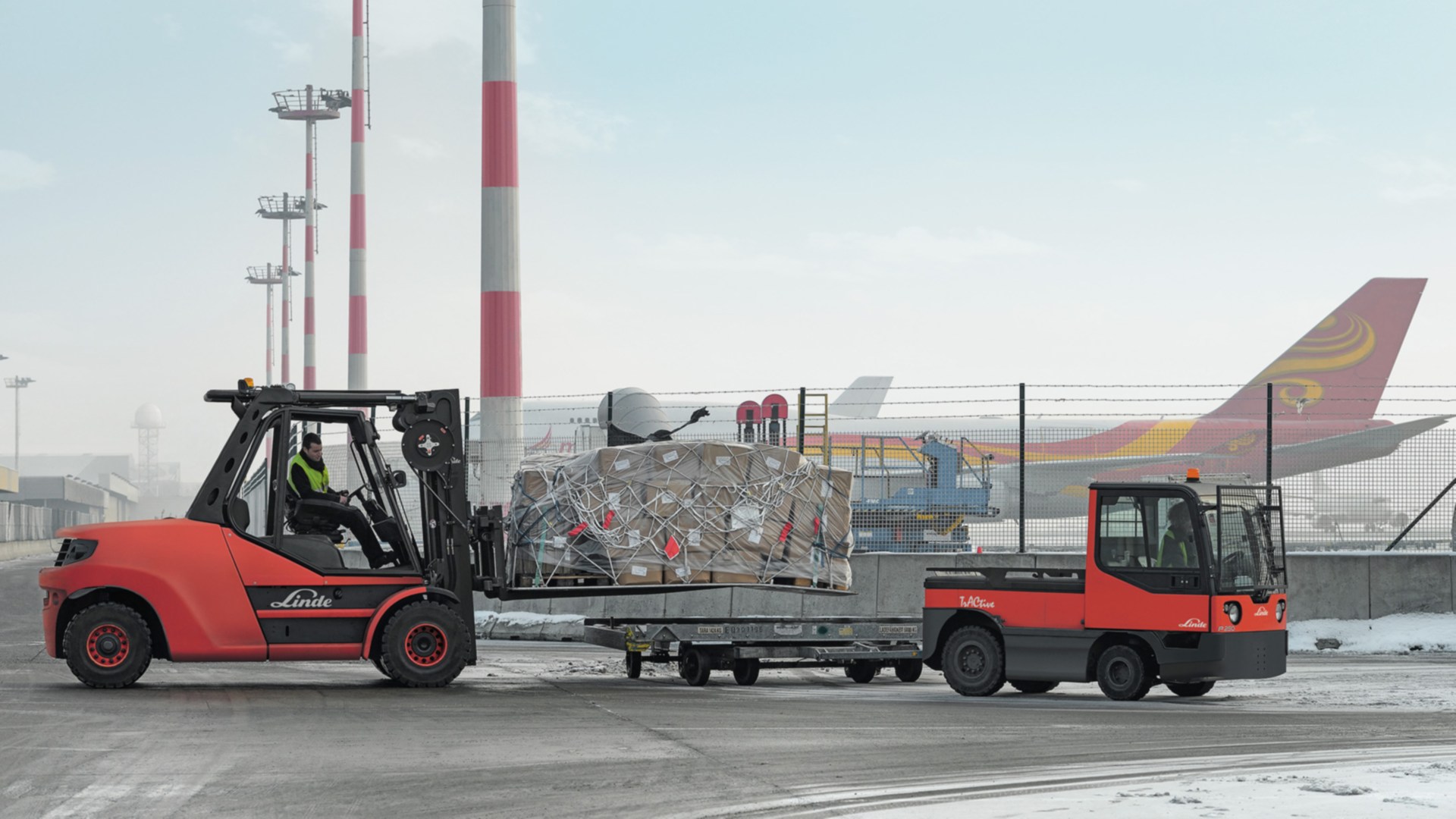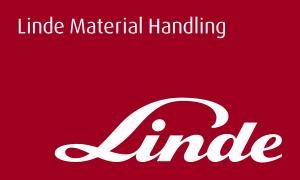
Linde presents comprehensive range of equipment for airport applications
21-Sep-2017
Linde Material Handling at inter airport Europe 2017, October 10-13, Munich
For the first time, Linde Material Handling will have its own exhibition stand at the “inter airport Europe”, International Trade Fair for Airport Equipment, Technology, Design and Services, which will be held in Munich from October 10-13, 2017. At Stand C104 on the outdoor area at the Munich Trade Fair Center, visitors can learn about trends such as customized solutions, software and digitization, as well as automated truck models and the subject of lithium-ion technology. Also on display will be the company’s extensive range of tow tractors and the Linde Roadster.
Time is a crucial factor when it comes to flying. This applies to passengers and air cargo alike. With 4.5 million tons transported in Germany in 2016, the latter accounts for only a comparatively small part of transport routes, but its proportion is growing steadily. “The industrial trucks used at the airport must be reliable and flexible enough for a wide range of applications, from supplying shops to handling small baggage and a wide variety of other cargo types, as well as driving through narrow halls and operating on the apron,” says Alexander Schmidt, Senior Product Manager Reach Trucks & Tractors at Linde Material Handling. “This is our particular strength.”
The Linde Roadster, modeled after the Linde E20 to E35 electric counterbalance truck series, was developed especially with the airport as a possible field of application in mind. It does not require an A pillar and features an overhead guard of reinforced glass. Thanks to its unique design, the Roadster offers maximum visibility of its driving path and ensures even greater safety.
The robust Linde P250 electric tow tractors with a total towing capacity of 25 tons, on the other hand, are specifically intended for outdoor use. The chassis is made of steel sheet which is several centimeters thick and the electronics are housed in a weatherproof enclosure. Furthermore, the hydraulic steering system and the hydromounts which isolate the driver’s cab from vibration ensure comfortable driving. Linde’s P60 and P80 tow tractors are particularly well-suited for indoor logistics, for example, when used as baggage carts or for maintenance work, and are also capable of towing heavier trailers weighing 6 to 8 tons. The Linde W08 platform truck is useful for airport applications as well as it features a large loading platform.
All compact and medium-sized tractors and platform trucks are deliberately designed with a width of less than one meter and have a very small turning circle, which makes them highly suitable for all kinds of indoor tasks – for example, supplying shops and restaurants in the terminals, which have become a major business sector within airports.
Individualization is a trend that is becoming increasingly noticeable at airports, too. Due to the specific conditions of use, tailor-made solutions are in demand. These do not need to be highly complex, but require knowledge of the market as well as engineering skills and creativity, as the following example demonstrates: At some airports, gates and passages are protected by strip curtains. However, continuously driving through these rubber strips can damage the front screens of tow tractors and platform trucks in the long term. “For many of our customers, we accordingly installed optional guard rails, which catch the curtain and push it to the side,” says Schmidt.

The second major trend, which is also emerging in airport logistics, is the possibility of networking and the functions resulting from it. Linde has developed a large number of modules for its “Linde connect” fleet management solution, which can provide valuable services in the airport environment, too. For example, the “connect: crash detection” module records shocks and impacts that occur while driving. If the magnitude is too high, the vehicle switches to a slow driving mode and must be reactivated by a supervisor. The Linde Speed Assist also displays its useful function in an environment in which outdoor and indoor use are equally important: For instance, it can be used to automatically throttle the vehicle to a fixed speed indoors, whereas the driver can opt to go at top speed on the apron.

